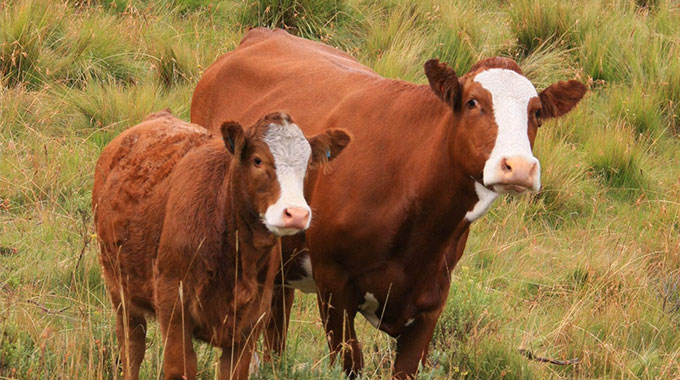
After a long dry spell which adversely affected the early planted crop, the rains started falling in substantial amounts over the past two weeks or so.
That was a welcome relief for farmers some of whose crops had been totally destroyed so they took the wet spell as an opportunity to replant. Cattle were dying in thousands due to lack of pasture and drinking water but the trend looks to change now as grazing and water sources get replenished.
Indeed, the despondency that had grown has now been replaced by hope, even though the hope remains guarded.
However, recent sightings of the fall armyworm, a voracious maize-eating pest which can wipe out whole fields in hours, are disturbing.
The first sighting this season was in late December in Shamva and Guruve in Mashonaland Central and Magunje in Mashonaland West.
In the second week of this month, the pest was spotted in Umguza District, Matabeleland North. Reports have been made of the worm affecting crops in Gweru rural, Somabhula, Zvishavane, Mberengwa and Shurugwi districts in the Midlands.
In all the reported cases, the full extent of crop damage has not been ascertained but this is one pest that can dash the nation’s hopes for a harvest this season.
We, thus hope that farmers and the Government are ready to contain the notifiable pest before it causes destruction.
The fall armyworm was unknown in Africa until January 2016 when farmers in Nigeria saw their crops being destroyed by a worm they had never seen. In 2017 the pest, originally from the Americas, had spread to 27 other countries including Zimbabwe, Zambia, Malawi and South Africa. It infested tens of thousands of hectares of maize with the UN and governments expressing fears that the fall armyworm could cause hunger on a regional scale.
Governments, with the support of the UN, spent a lot of resources trying to contain it. Zambia actually deployed its army to face the armyworm.
We don’t think the invasion this time would be as big as the 2017 and 2018 ones but farmers must always be vigilant to identify the pest and ready to deal with it early on.
The fall armyworm grows to a length of about four centimetres. It eats about 80 crop types among them sorghum, millet, rice, wheat and sugar cane as well but maize, the national staple, is its favourite.
It eats up all plant material it encounters, like an army, leaving their victims on the ground. The pest completes its life cycle in 30 to 90 days depending on the season it grows.
The fall armyworm is very difficult to detect and contain, we must admit, because it burrows into the centre of the host crop and into the cob itself to destroy it completely.
To reduce its impact, we implore farmers to always scout their fields for the pest for earlier detection. If they detect it early enough, they can take measures to curb it before it spreads further and before the crop reaches its vegetative stage when the fall armyworm damage is at its worst.
Since the fall armyworm is a notifiable pest, we implore the Government, through its structures on the ground and up, to be always ready to move in swiftly before the damage caused by the pest increases. The speed with which authorities addressed the Midlands outbreak over the past week or so is, as reported by the national broadcaster yesterday, commendable and must be replicated as soon as the caterpillar is spotted elsewhere.
The Government also needs to intensify educational programmes at farm level. Farmers must be educated on how to protect their crops against possible invasion and damage arising from the fall armyworm. They must be educated on how to identify it, how it looks, the appropriate times to scout their fields and what measures they should take as soon as they spot it before authorities intervene.
It is a bit late into the season now, our farmers, must, going forward, have budgets for them to be able to act before the Government machinery is activated. If they have money set aside, or appropriate pesticides in place, their response time is faster than in an event where they start looking for money to buy a pesticide when their crop is already under attack. Chemicals such as Carbaryl 85 wettable powder, Ampligo 150 ZC (Chlorantraniliprole), Coragen (Chlorantraniliprole), Superdash (Emamectin Benzoate) and Tide Plus 5WG (Emamectin Benzoate) can be used to control the pest.
We emphasise that action to contain fall armyworm infestation must be quick so that the 2018-19 drought that left more than five million citizens hungry is not followed by another season of crop failure caused by a pest which we can control.
